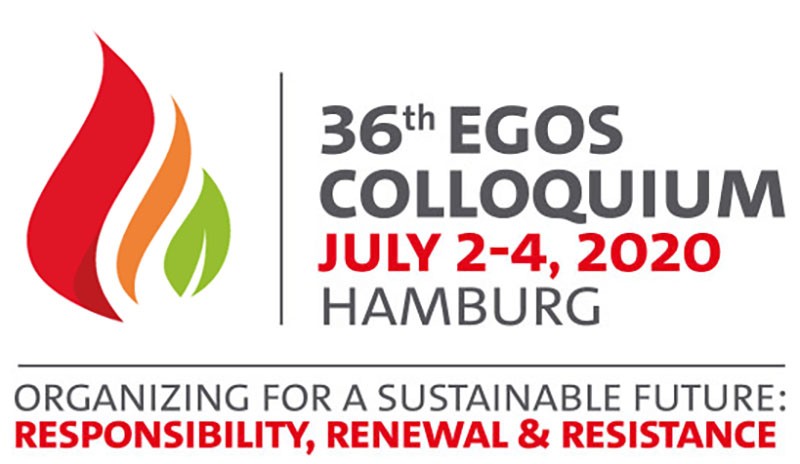Sub-Plenary 2-3
Grand Challenges and New Forms of Organizing
Ali Aslan Gümüsay, University of Hamburg, Germany
Hannah Trittin-Ulbrich, Leuphana University Lüneburg, Germany
Christopher Wickert, VU Amsterdam, The Netherlands
Panelists:
Fabrizio Ferraro, IESE Business School, Spain
Juliane Reinecke, King’s College London, United Kingdom
Maja Göpel, Secretary-General, German Advisory Council on Global Change
Grand challenges represent fundamental, global societal challenges of ecological and social nature including climate change,
biodiversity loss, inequality, and pandemics, such as COVID-19. They require and elicit coordinated, collaborative, and collective
efforts. New forms of organizing integrate novel structures, practices, and processes to engage with these grand challenges
in viable ways. Consequently, the interrelation between grand challenges and new forms of organizing is worth exploring.
In this sub-plenary, we intend to offer a platform for debate at the nexus of grand challenges and new forms of organizing.
What are the novel structures, practices and processes that are mobilized to tackle current grand challenges? In which ways
are novel forms of organization superior or inferior to traditional forms of organizing in addressing grand challenges? How
do grand challenges accelerate the development and application of novel forms of organizing? How sustainable are novel forms
of organizing? How can we theorize insights from practice? How can we prepare to theorize what comes next?
Ali Aslan Gümüsay is a post-doctoral researcher at the University of Hamburg, Germany, and Head of research group at the Humboldt Institute
for Internet & Society. His research interests include values, meaning & hybridity in entrepreneurial settings; grand challenges,
innovation & new forms of organizing; societal complexity & engaged scholarship; and digitalization, AI & the future of work/leadership.
Ali’s work has been published in journals such as Academy of Management Journal, Academy of Management Perspectives, Business & Society, Innovation: Organization & Management,
Journal of Business Ethics, and Research Policy.
Hannah Trittin-Ulbrich is an Assistant Professor for Business Ethics at Leuphana University of Lüneburg, Germany. Her research interests include
business ethics, corporate social responsibility (CSR), CSR communication, diversity management, and digital technologies
(social media, gamification, big data). Her research has been published in the Journal for Business Ethics, Corporate Communication: An International Journal, and the Journal of Management Inquiry. She is also a guest-editor for the journal Organization.
Christopher Wickert is an Associate Professor in Ethics & Sustainability at Vrije Universiteit Amsterdam (VU), The Netherlands. His research
interests include orporate social responsibility (CSR), organization theory, critical management studies (CMS), and business
ethics, zooming in on the question how and by whom CSR is organized in globally integrated business firms. Christopher’s work
has been published in outlets such as Academy of Management Discoveries, Business & Society, Human Relations, Organization Studies, Journal of Business Ethics, and Journal of Management Studies.
Fabrizio Ferraro is Professor of Strategic Management at IESE Business School, Spain. His current research explores the emergence of responsible
and impact investing in the financial sector. Previously he studied the institutionalization of the Global Reporting Initiative
(GRI), robust action strategies to tackle grand challenges and the role of economics language in organizing. His work has
been published in Administrative Science Quarterly, Academy of Management Review, Academy of Management Journal, Organization Science, and Organization Studies, among others.
Juliane Reinecke is Professor of International Management and Sustainability and Associate Dean (Impact & Innovation) at King’s College Business
School, United Kingdom. She is a Fellow at the Cambridge Institute for Sustainability Leadership and Research Fellow at the
Judge Business School, University of Cambridge. Her research interests include process perspectives on global governance,
sustainability, practice adaptation and temporality in organizations and in global value chains. Juliane’s work has been published
in the Academy of Management Journal, Journal of Management Studies, Organization Science, Organization Studies, and Research Policy, among others.
Maja Göpel is the Secretary-General of the German Advisory Council on Global Change and works on the science–policy–society interface for sustainable futures
with a focus on science communication. She is a scientist who combines theory with practice. Her research background lies
in system transformations for sustainable development, and her personal interest are new prosperity models and the catalytic
role of paradigm shifts, summarized in her book “The Great Mindshift” (Springer, 2016). Maja is also a Professor at Leuphana
University Lüneburg, Germany, and co-initiator of OS4future.


